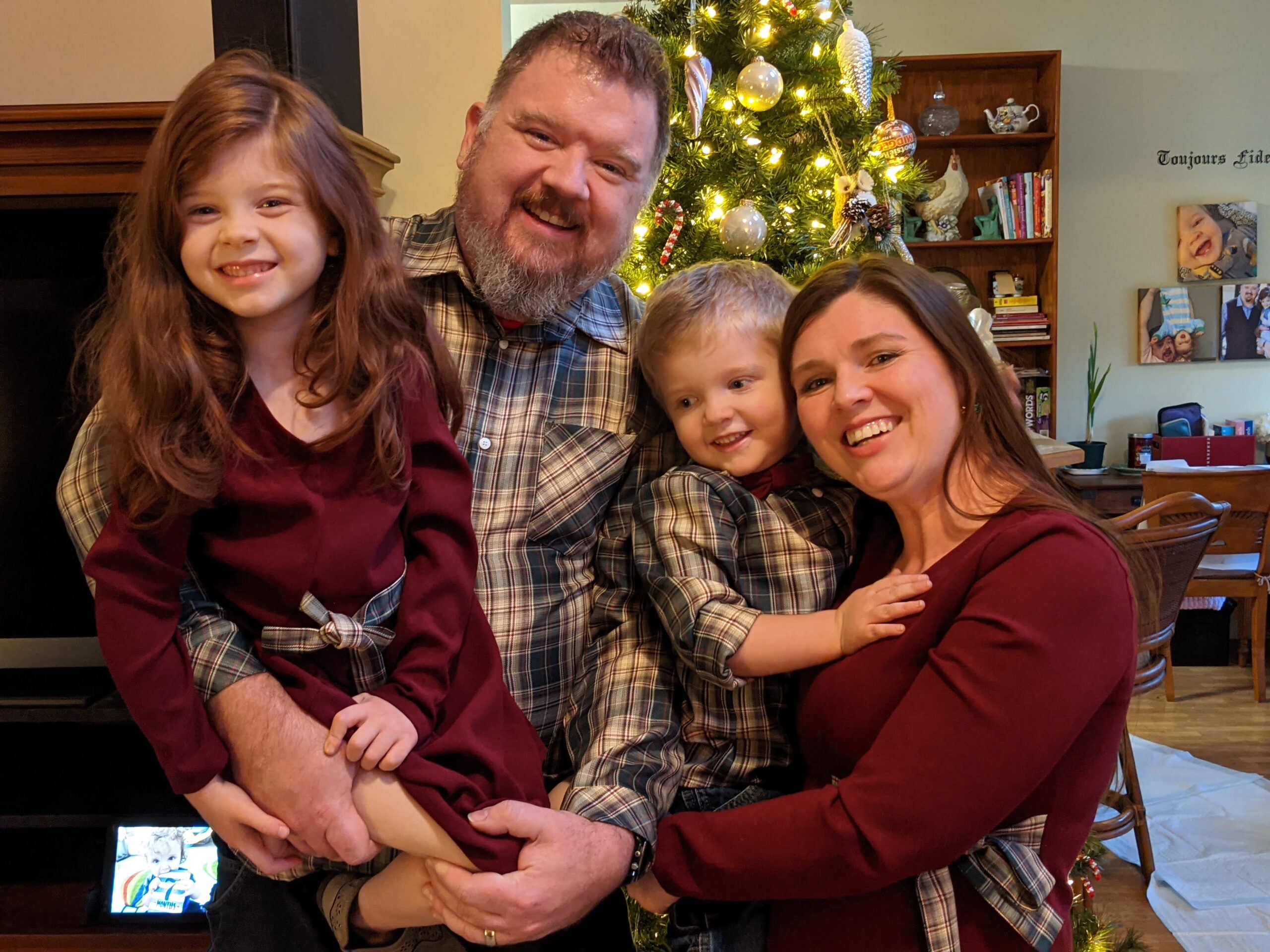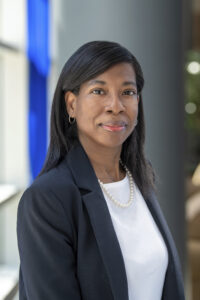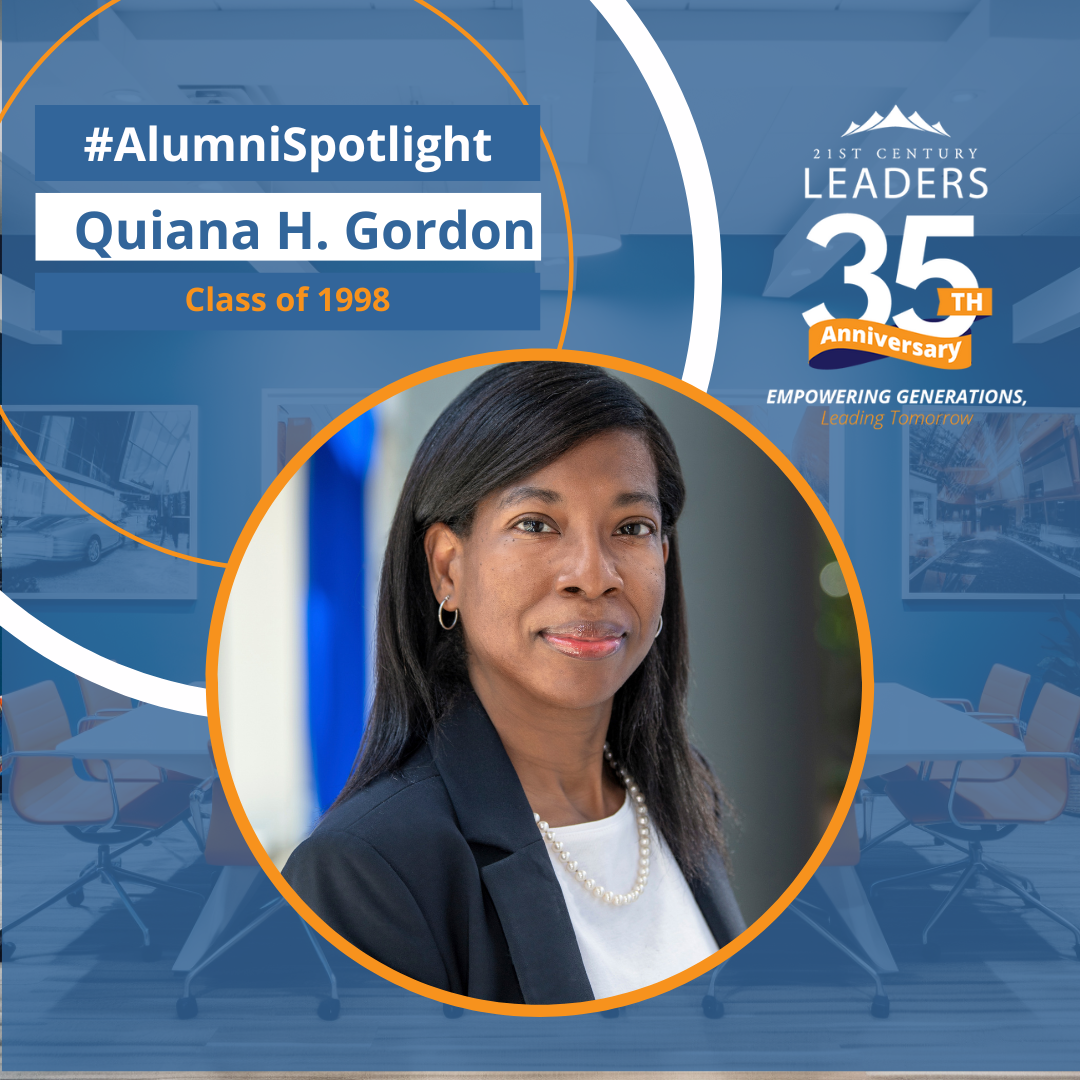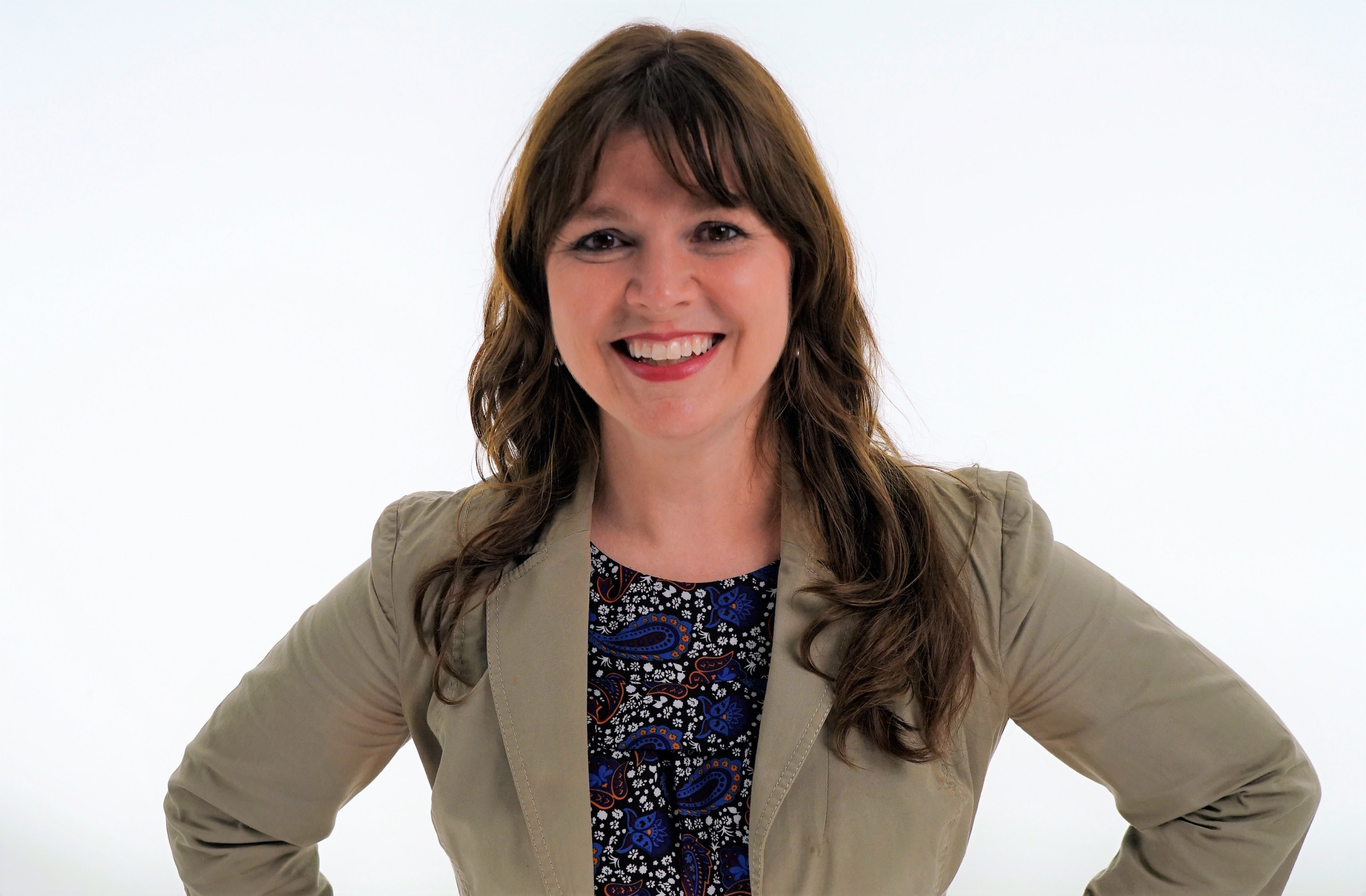21CL Alumna Sara Gard is our first alumni spotlight for 2022. A graduate of Norcross High School (1999) and of Trinity University (2003), Sara is a wife and mother of two young children and currently works as the Manager of Talent and Organizational Development at APCO Holdings. In this post, she shares about how the reality check she had during her 21st Century Leaders days helped to get to a juncture she is at now where what she loves doing, what she’s good at doing, and what her company is glad to pay her for doing converge!
Paint a brief picture of what you are doing now.
I am the Manager of Talent and Organizational Development, which is part of the Human Resources function for APCO Holdings. We work in the automotive Finance & Insurance industry. In my current role, I manage processes like talent requisition, training and professional skills enhancement, career pathing, and compensation planning. Additionally, I am the volunteer leader of our Diversity & Inclusion Council. APCO has decided to move to a permanently hybrid work model, so I split my time between my home office and my “office office.” This flexibility has been extremely important for maintaining my lifestyle – I have a husband and two young kids (ages 6 and almost 4).
As a manager of processes, I spend a lot of time thinking, planning, and organizing independently. I do a lot of research and reading so that I stay aware of current trends and hopefully ahead of our competitors. Even though APCO is a 35-year-old company, we have an entrepreneurial attitude, so we’re constantly striving to be the disruptor for our industry rather than responding to the latest disruption. It makes for a fast-paced, exciting work environment. It can be tiring, but also very rewarding.
 Outside of work, I enjoy spending time with my family, reading, cross-stitching, and when my kids are fully vaccinated I look forward to traveling again.
Outside of work, I enjoy spending time with my family, reading, cross-stitching, and when my kids are fully vaccinated I look forward to traveling again.
I grew up thinking that my life experience was similar to everyone else’s, and 21st Century Leaders was one of my first opportunities to interact on a deep level with people who grew up very differently. My suburban, upper-middle class life was completely different from my 21CL peers, who came from urban, rural, privileged, and disadvantaged lives. It made me want to expand my personal definition of success, and put success within reach for as many people as possible. My career took a few detours, but when I found my way into Talent Management, I realized that it was what I was always searching for. Now, I am allowed to feed my spirit by making a positive difference in the lives of fellow employees while I make a positive business difference and get paid for it. A previous boss used to call it “finding your sweet spot” – I am at the juncture where what I love doing, what I’m good at doing, and what my company is glad to pay me for doing converge. If I hadn’t had the reality check of 21st Century Leaders, I’m not sure I would have made the right choices, done the hard work, and invested in the skills and experiences that have brought me to this place, this “sweet spot”.
Which programs did you participate in? How did the skills/tools/perspectives you acquired from 21CL prepare you for your next steps, going into college, taking on new leadership roles in your community, college and after?
I was in 21CL way back in 1997, when we only had the summer on-campus program available. I remember staying in the dorms, taking day trips to various businesses, hearing from business leaders, and learning from my peers in the group. This was my first introduction to “instant team,” or a group of strangers who are grouped and given an objective, and you don’t really get a choice in the matter. In college and in business, these groups happen frequently, and rarely are we in control of who is in our group or how quickly we must learn to get along. I thought I would be the most knowledgeable, correct, and dynamic in any situation, but at 21CL, I learned that I was only a big fish in my little pond. The slice of humble pie was a healthy reminder.
What was a memorable or ‘aha’ moment in 21CL? (a particular program, meeting a professional and diverse peers, speaking in public for the first time, etc..)
My “aha” moment actually came after 21CL, but was directly related. I met a really cool leader at 21CL named Ebony. She was from the Valdosta area, and I knew which high school she attended. Not long after 21CL, maybe the next week, I went to the Governor’s Honor Program at Valdosta State University, and my roommate was from the same high school. The roommate and I didn’t get along very well, but we were polite to one another. At nearly the end of the 6-week GHP program, the roommate and I had what felt like a breakthrough in our relationship, and I asked her if she would say “hi” to Ebony for me when she got back to school. I will never forget her looking at me and saying, “No. I do not speak to her. She is black, and I am a racist.”
I had lived in the same room as someone who couldn’t see the value of people past the color of their skin, and in that moment I didn’t know what to do. I think I said, “Oh.”
That moment defined something in me. It forced me to realize that no matter how hard I wanted the world to be one way, every person is experiencing this life differently. Some of us are experiencing this life in such a way that we think others’ experiences are less worthy. That has helped to fuel my desire to work for companies and in a capacity that affirms the worth of every life experience, allowing for each individual to choose their path, their goals, and their own definition of success. I take the greatest satisfaction when I am part of the company’s actions and programs that lead to positive change for the most inclusive group of employees possible. It feels like putting dreams within reach and doing important work.
Did 21CL assist you in developing a leadership style that makes you an effective leader? if so how? And have you recently learned something else about leadership? Please share!
I’ve already admitted that it was a long time ago when I was in 21CL, and I have changed and developed as a person and a leader in ways that would make me of today unrecognizable to that version of me. These days, I teach leaders about leadership, and I put my knowledge of leadership into practice in my own life. One big leadership lesson that is easy to implement was taught to me by Gerald Rakestraw. He is a Senior VP-level leader at a former employer, and I asked him one day to send an email regarding an issue that he was the voice of authority on. When he declined, he told me, “Sara, my voice is too loud for this issue. You have to know when your voice is the right volume for the message.”
As leaders, each of us has a certain volume to our voice. When the title is “Coordinator,” the volume is much quieter than when the title is “Senior Vice President.” What I needed to understand in that moment was that if Gerald said it, the issue would be made larger than necessary, with a spotlight shone on it, and our colleagues wondering who had caused the issue in the first place and what the fallout might be. There would be no room for error on the issue, and definitely no more discussion. This is because when the loudest person speaks, the discussion is over. In that instance, the message needed to be handled discreetly, at a softer volume and a more limited audience.
The chairman of the board at that time knew he had the “loudest” voice in the entire organization, which meant that he rarely spoke in meetings, and if he did it was always when the meeting was about to end. That style of leadership, knowing one’s own authority and making careful use of it, has molded me as a leader. It is an effectiveness tool that I enjoy sharing with others. In short, know the value of your own voice, and only speak when necessary.
 How has your career unfolded and how did participating in 21CL help prepare you for your next steps going to college, taking on a new leadership role in community/college and after?
How has your career unfolded and how did participating in 21CL help prepare you for your next steps going to college, taking on a new leadership role in community/college and after?


 Outside of work, I enjoy spending time with my family, reading, cross-stitching, and when my kids are fully vaccinated I look forward to traveling again.
Outside of work, I enjoy spending time with my family, reading, cross-stitching, and when my kids are fully vaccinated I look forward to traveling again.